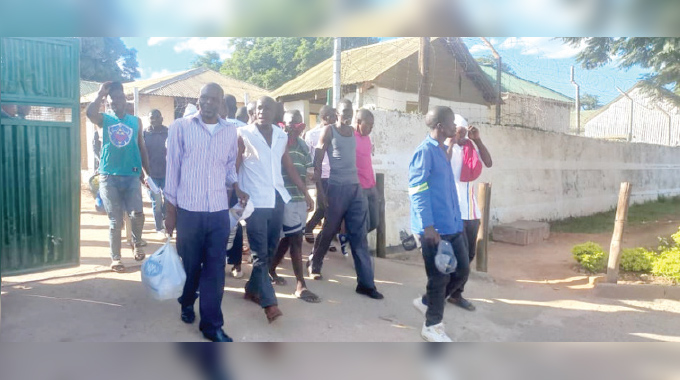‘Run firms using indigenous business models’
Business Editor
ZIMBABWE should utilise local think tanks to drive the implementation of the indigenisation programme and increase protection of domestic intellectual property to achieve meaningful economic growth, Bulawayo-based business transformation strategist, Zwelibanzi Ndlovu has said.
Ndlovu, who met Vice President Emmerson Mnangagwa during a tour of stands at the Zimbabwe International Trade Fair (ZITF) on Wednesday, said huge economic potential for the country lies in tapping domestic intellectual involvement.
“The country is on a path where indigenisation has been understood. Some of what may have been seen as hype has been put into context. Indigenisation isn’t about how much you own but owning so that you can make a difference,” he said.
“In that regard the country is at a place where we’ve indigenised companies, which means companies where Zimbabweans own a majority stake in terms of equity. We now own most of the companies and natural resources.
“However, when it now comes to running those companies we’re coming short in terms of failure to support indigenous business minds, indigenous scholars and indigenous strategic thinkers who’ve to actually develop models, methodologies and tools that can be used to transform organisations.”
Ndlovu said while indigenous people have been empowered and now own the means of production, a majority of entities were foreign oriented and lacked resonance with local fundamentals.
“What we’ve essentially is a situation where we’ve indigenous ownership of natural resources but when it comes to running those companies we then look again to the West. We still use Michael Porter and his five Cs, use Steve Covey and his seven habits.
“We go back to the West and copy their balance score cards. Basically what we’re doing is indigenising ownership but when it comes to running these things we’re using foreign model skills,” said Ndlovu.
“My point is that when we indigenise ownership, those entities should be run using indigenous business models. It’s as if we entrust our resources in such a way that we trust the hands, feet, the muscles and physical attributes of Zimbabweans but we don’t trust their brains to run entities.”
The prominent business consultant and founder of Stop to Start International said Zimbabwe has the brightest intellectuals and concrete models backed by thorough research, which are yet to benefit the country.
“I had the privilege of having the VP coming to spend time at our stand and I was saying can something be done in order to make sure that the natural and human resources in terms of intellectual capital of the Zimbabwean can be protected and be actually utilised so that when we’re talking about results based management we look at tools that have been developed by indigenous people to run those indigenous businesses,” added Ndlovu.
He challenged local firms to produce competitive products to compete on the export market.
“Trade is two way, we need to produce, remain competitive and export. Most importantly we need to partner. We need to demonstrate we’re proactive in terms of partnerships,” said Ndlovu.
He said it was unfortunate that due to the difficult economy most companies were scaling down.
“People are cutting out whole components. I mean when times are hard they cut training, consultancy, some cut marketing. My advice is that you still need to have the ratios. A certain portion of your money must go to research and marketing.
“That’s the reason why in this depressed economy Bulawayo based companies like us are at this trade fair since we started for the fourth year running. It doesn’t mean we’ve paid all our other debts. We’re running like every business but we’ve to balance other things and still spend on marketing while we spend on other things,” said Ndlovu.









Comments